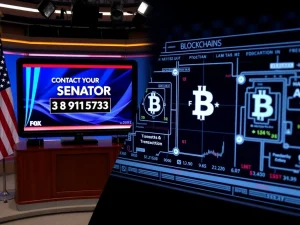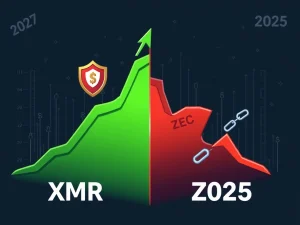Bitcoin News Today: Trump Task Force Shocks with Crypto Regulatory Overhaul, Drops Bitcoin Reserve Plan

In a bold move that could reshape the cryptocurrency landscape, Trump’s digital asset task force has unveiled a sweeping regulatory overhaul—but with one glaring omission: the Bitcoin reserve idea. What does this mean for the future of crypto in the U.S.? Dive into the latest Bitcoin news today.
Crypto Regulatory Overhaul: What’s in the Plan?
The task force’s recommendations focus on three key areas:
- Legal clarity: Expanding the Digital Asset Market Clarity Act to differentiate securities from commodities.
- Stablecoin regulation: Fast-tracking the GENIUS Stablecoin Act for oversight of dollar-pegged cryptocurrencies.
- Tax simplification: Reducing compliance burdens for crypto users and businesses.
Why Did the Bitcoin Reserve Idea Get Dropped?
Trump’s earlier proposal to back the U.S. dollar with Bitcoin was conspicuously absent from the task force’s recommendations. Experts speculate this may indicate:
- A shift toward more immediate regulatory priorities
- Skepticism about Bitcoin’s role in monetary policy
- Focus on foundational market stability measures
Stablecoin Regulation Takes Center Stage
The GENIUS Stablecoin Act proposes:
| Feature | Purpose |
|---|---|
| Transparency requirements | Ensure stablecoin issuers maintain proper reserves |
| Consumer protections | Safeguard users against potential collapses |
| AML compliance | Prevent illicit use of stablecoins |
What This Means for Crypto’s Future
The task force’s pragmatic approach suggests:
- Prioritization of market stability over speculative monetary experiments
- A measured path toward mainstream crypto adoption
- Potential for more predictable regulatory environment
Frequently Asked Questions
Q: Why wasn’t the Bitcoin reserve proposal included?
A: The task force likely viewed immediate regulatory needs as more pressing than long-term monetary policy changes.
Q: How will the GENIUS Stablecoin Act affect crypto users?
A: It aims to make stablecoins more reliable for transactions while adding consumer protections.
Q: When might these changes take effect?
A: Key legislation will need Congressional approval, so timing depends on political processes.
Q: Does this mean the U.S. is backing away from Bitcoin?
A: Not necessarily—the focus is on creating foundational regulations first.










